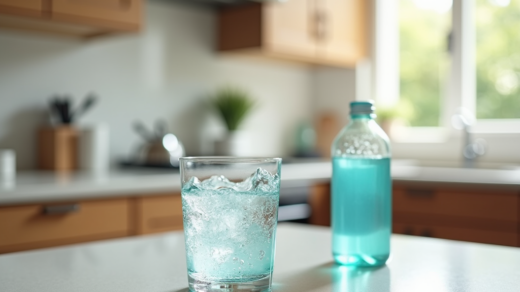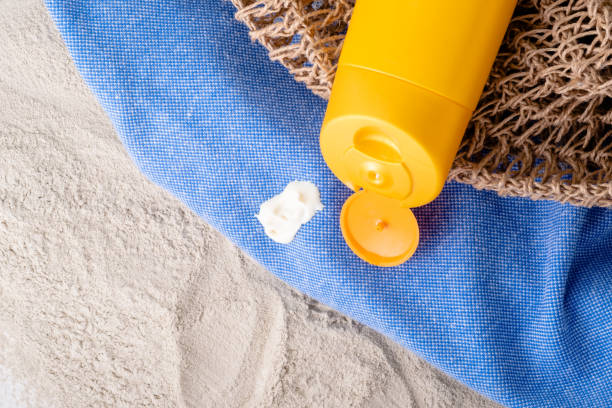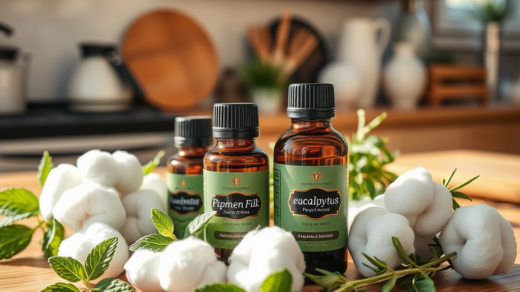As the warmer months approach, so does the presence of wasps buzzing around your outdoor spaces, potentially ruining your picnics and barbecues. Understanding how to fend off these pests naturally can make your summer gatherings much more enjoyable. You might wonder if chemical repellents are the only option, but nature provides us with powerful alternatives that are not only effective but also safe for our environment. By implementing a few simple ingredients found around your home, you can create your own homemade wasp repellent that ensures your outdoor areas remain serene and pest-free. Here’s a rundown of the top five natural ingredients that serve as powerful repellents against these bothersome insects.
Essential Oils

Essential oils are known for their potent fragrances and therapeutic benefits, and they have also proven to be remarkable for pest control. These oils release strong scents that wasps find unpleasant, making them an excellent choice for homemade repellents. Furthermore, they are versatile and can be used in various forms, such as sprays, diffusers, or even candles. Among the many essential oils, two particularly stand out for their wasp-repelling capabilities.
- Peppermint Oil: This oil not only brings a refreshing aroma but also confuses and repels wasps with its strong scent.
- Cinnamon Oil: The sweet yet spicy smell of cinnamon can deter wasps from approaching your outdoor areas.
Vinegar

Another kitchen staple, vinegar, has effective insect-repelling properties that make it a must-have ingredient in your homemade wasp repellent arsenal. Its strong odor can mask scents that attract wasps, making your outdoor living spaces less appealing to them. Mixing vinegar with water allows you to create a potent repellent that is both easy and quick to make.
| Vinegar Mixture | Proportions | Application |
|---|---|---|
| Apple Cider Vinegar | 1 part vinegar, 1 part water | Spray around areas where wasps are commonly spotted |
| White Vinegar | 2 parts vinegar, 1 part water | Use as a targeted spray on nests |
Citronella
Citronella is most often associated with repelling mosquitoes, but it also has proven efficacy against wasps. The lemony scent of citronella is considered offensive to these insects, making it a powerful ally in your fight against wasp invasions. You can use citronella in different forms, from candles to essential oils, giving you various options for application.
- Candles: Lighting citronella candles during outdoor events can create a protective barrier.
- DIY Spray: Mix citronella oil with water for a homemade spray that targets specific areas.
Garlic
Garlic is not only a culinary favorite but also a potent natural repellent against wasps. The strong smell of garlic is something that these pests tend to avoid, making it an effective ingredient for your homemade solutions. You can easily create a garlic spray by blending a few cloves with water. Some advocate letting it sit to increase potency before application. When using garlic, it’s essential to consider that the odor can be strong, so apply it strategically to avoid overwhelming indoor spaces.
Soap
Last but not least, soap can serve as a surprising yet effective ingredient in wasp repellent formulations. Soap works by disrupting a wasp’s ability to breathe, thus acting as a method of deterrence. While using soap, it’s crucial to choose the right type to avoid harming the environment further. Mixing dish soap with water is a simple yet potent combination.
- Dish Soap Mixture: Combine about 2 tablespoons of dish soap with water in a spray bottle.
- Application: Spray directly on wasps or their nests, but always exercise caution.
Conclusion
Creating your own wasp repellent using these natural ingredients allows you to take control of your outdoor spaces without harming the environment or exposing your loved ones to harsh chemicals. By utilizing essential oils, vinegar, citronella, garlic, and soap in thoughtful combinations, you can effectively deter these pests while enjoying the beauty of nature. Not only are these homemade solutions effective, but they also offer peace of mind knowing you are choosing a safer option for yourself and the ecosystem around you.
Frequently Asked Questions
- Are homemade wasp repellents safe for pets? Yes, most homemade wasp repellents made from natural ingredients are generally safe for pets, but always double-check specific ingredients first.
- How often should I apply these repellents? It is recommended to reapply every few hours, especially after rain or heavy winds.
- Can these repellents harm the wasps? No, the intent is to repel and deter, not to harm. The goal is to keep them away from your area.
- Are there any precautions I should take? Always test a small area when applying any homemade repellent and be cautious of allergic reactions if you or others have sensitivities to these ingredients.


